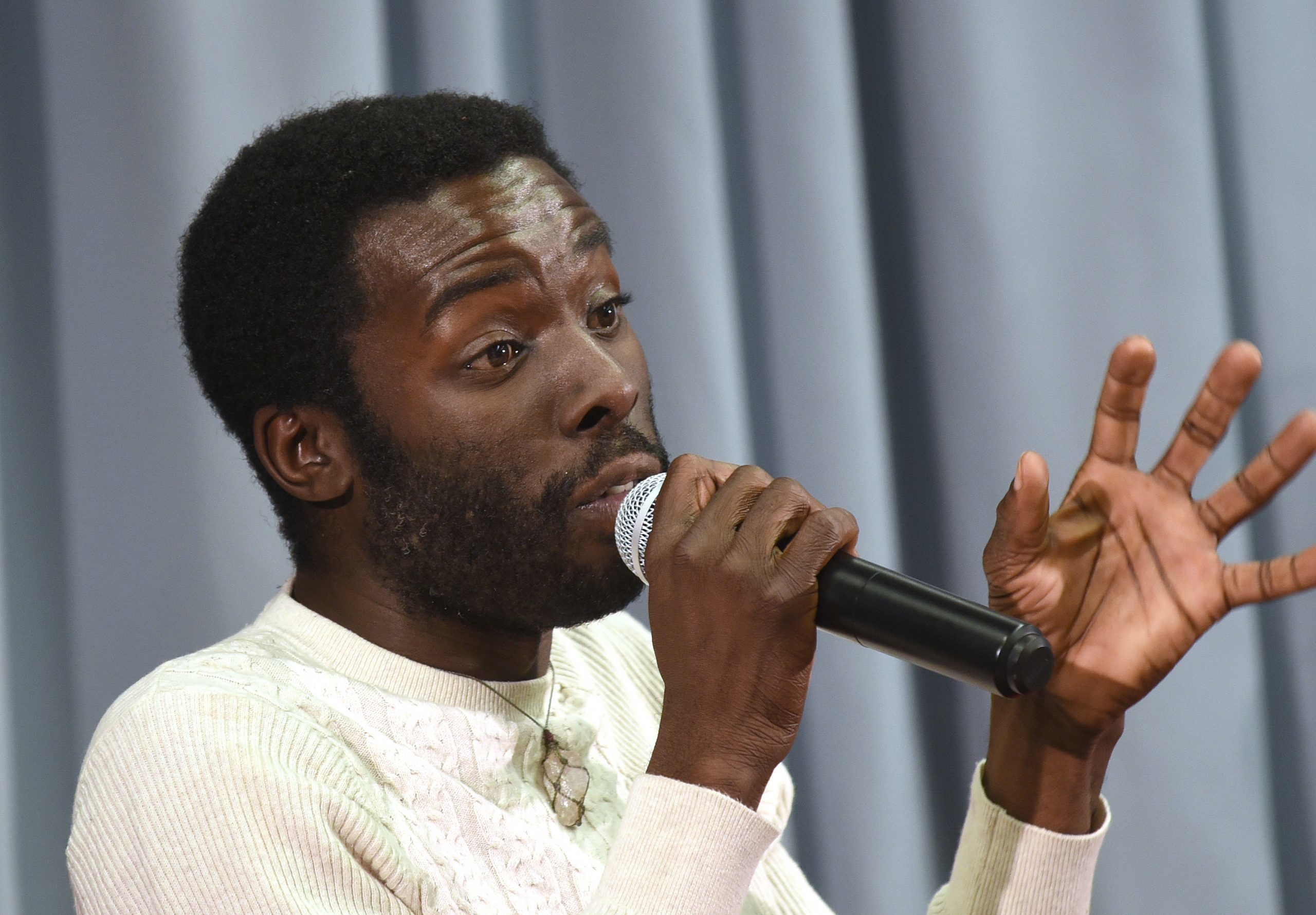The question of whether or not journalists can be activists is a contentious topic. Traditionally, journalism schools have taught students that objectivity is a core principle in the industry. At the Ryerson Review of Journalism, we thought it important to ask: is objectivity a sham?
At our fall conference, Activism x Journalism, we invited activist and journalist Desmond Cole to speak to an audience of mostly young journalists, challenging them to reject objectivity as a tenet of journalism.
Cole is best known for his Toronto Life cover story “The Skin I’m In,” a piece about his experiences being carded as a Black man in Toronto. In 2017, he made headlines when he gave up his bi-weekly column at the Toronto Star after being told he was violating the organization’s policies surrounding activism and journalism. He remains a prominent voice in Toronto’s Black liberation movement and will soon release a book, The Skin We’re In, that chronicles key events from 2017 in the struggle against racism in Canada.
Here are conference editor Sukaina Jamil’s five key takeaways from the conversation.
1. There’s actually no such thing as objectivity in journalism
Cole argued that it is impossible for a journalist to view something and not alter it based on their own perception of what happened — a stance that challenges the idea of objectivity altogether.
In journalism school, we often hear that our role as journalists is to act as a “lens” and to document matters of public interest. Cole challenged this notion.
“Journalism has to be about something human,” said Cole. “It is not simply a lens recording history; it is about justice.”
2. Journalism and activism do converge
Cole insisted on greater intersection between journalism and activism.
“All good journalism is activism,” he said. ”Because journalism is, at its simplest, a documentation of injustice.”
Journalists are inherently activists, and should not apologize for telling stories and taking action against injustice, he said. The purpose of journalism is to amplify voices that otherwise go unheard and stand up for those who are unable to do so themselves.
“If journalism isn’t about justice, then I don’t want it.” he said.
3. Honest journalism is not synonymous with objective journalism
As journalists, we often confuse objectivity with the truth. However, as Cole told the audience, it is possible to be truthful in journalism without engaging in the “mythical quest to be neutral or objective.”
“Objectivity and truth are not the same thing,” he said. “But somehow objectivity is supposed to be better. Objectivity seems to offer us a version of the truth that isn’t influenced by human bias, and yet is conducted somehow still by human beings.”
“I reject that,”Cole said.
4. When it comes to covering race, “talk about your damn selves”
The future of journalism is often painted as difficult and unforgiving, especially for racialized journalists.
To journalists who are not members of a visible minority but want to write about race or issues affecting racialized communities, Cole’s primary message was clear: “Talk about whiteness and talk about your damn selves.”
He said it is extremely important for white journalists not to point their microscopes at racialized communities, but rather to focus on understanding white supremacy in order to truly be helpful.
5. There is strength in numbers
Cole said there is always “strength in numbers.” To take action and spark change, young journalists should band together.
“Individually we might feel really alone or really weak … but power starts to fear and to pay attention when we gather together and we organize under a common cause,” said Cole.
“I sometimes think that the best that we can do is to organize to a point where we instill that collective fear in the powerful so that we can get their attention and make some positive changes.”
Desmond Cole’s book, The Skin We’re In, will be released Jan. 28, 2020.
About the author
Sukaina Jamil is the conference editor at the Ryerson Review of Journalism. She specializes in content creation and curation. She has previously worked as a writer and editorial director for Kaleidoscope and as a reporter and content editor for Alma Latina. Her journalistic passions lie in immigration, marginalized communities, food and culture.
